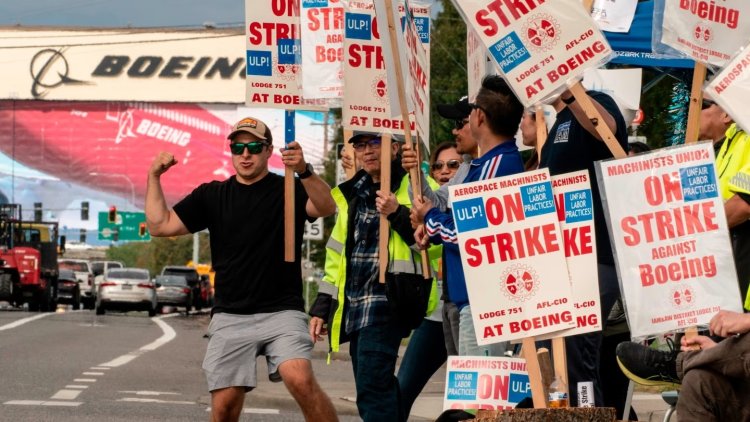Boeing pulls offer as machinists' strike continues

Negotiations between Boeing and the International Association of Machinists broke down, with the company withdrawing its latest pay rise offer for striking workers. Over 30,000 workers have been on strike for three weeks, seeking a 40% pay rise over four years and the restoration of a pension plan lost a decade ago.
Boeing's head of commercial planes, Stephanie Pope, stated that the union did not seriously consider the company's proposals, making further negotiations pointless. Workers had previously rejected offers of 25% and 30% pay rises over four years, with more than 90% voting against the initial offer.
The strike comes at a challenging time for Boeing, which is facing financial pressure due to reliability issues with its 737 MAX jet and production curbs. The company has furloughed thousands of employees and halted production of its best-selling 737 MAX jet and other lines.
S&P placed Boeing's credit rating on CreditWatch negative, indicating the company may need to seek additional funding. Analysts estimate Boeing needs $10-$15 billion to maintain its credit ratings, and the company is considering selling stock and equity-like securities to raise funds.
Union negotiator Jon Holden said that striking workers are prepared for a "long haul" and ready to wait out the planemaker.
The ongoing strike is estimated to cost Boeing about $1 billion per month, according to S&P, and could potentially lead to the loss of its investment-grade credit rating. The company is exploring ways to shore up its finances, including possibly selling stock.
The labor dispute has taken a toll on Boeing's stock, with shares closing down 3.4% and having lost over 40% of their value this year alone. The situation remains tense, with no new talks scheduled between the company and the union, as both sides appear to be digging in for a prolonged standoff.















